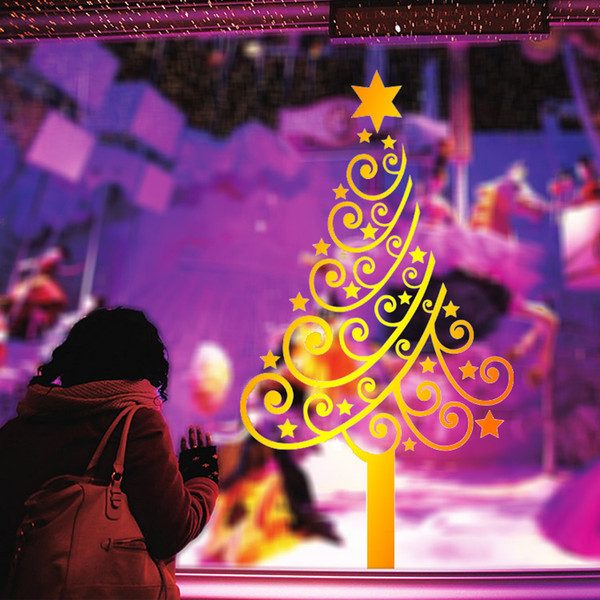Merry Christmas and Happy Holidays! Happy New Year! Happy Birthday! Happy Anniversary! If these phrases make you cringe, welcome to the HOLIDAY SABOTAGE VICTIM reality.
Chances are you used to love or like holidays — and probably still secretly or bashfully will admit that you do — but that someone with an anti-social and narcissistic personality type traumatized you.
People who sabotage holidays like Christmas, Christmas Eve, New Year’s Eve, Valentine’s Day, Passover or Easter, nice holidays for the community like the Fourth of July in the United States or Boxing Day in Canada, Halloween fun or fall celebratory activities, Thanksgiving or other similar traditional feasts, other people’s special events like birthdays, graduations, wedding days, wedding nights, wedding receptions, and or anniversaries are a particular type of anti-social civic and social psychology saboteur.
Cluster B people who lack the ability neurologically to appreciate a social feeling of community are the most likely to be obnoxious the closer it comes to any holiday.
Happy people — acting like Cheermeisters in the Jim Carrey movie “How The Grinch Stole Christmas” do harm to little ones who lack the emotional ability to perceive a feeling of fitting in and prospering specifically because of the opportunity to socialize with others.
Kids born with biological defects that cause things such as color blindness or low emotional intelligence and vertical thinking as a whole are the type who tends to dislike holidays the most. Each time the Christmas jingles start to play, one can see the dour expressions grow more and more angst twisted as the holiday grows closer.
Emotionally aware people tend to value time spent with other humans in loving environments. They tend to understand that those types of events don’t just happen. Everyone involved acts like a new ingredient to a metaphoric holiday stone soup.
As each guest arrives at an event, they bring their own pro-social contribution — some a smile, other’s a warm hug, still others a gift or some kind of fellowship inspired food sharing dish.
To the birthday party — one brings a smile and a gift. One seeks to celebrate knowing the person who was born on the special day and to share community with them while celebrating and remembering them.
The ASPD person sees attending such events as boring, tiresome, and a social burden.
Buy a gift that involves thinking about what would please the receiver? The kindest thing to expect from someone ASPD is cash or a gift card — or a stack of stuff from a store or brand they think you are likely to like that some shopkeeper trying to make a sale instructs them to purchase… given complete with a receipt to be able to take back or to exchange every item they purchased.
The ASPD person hears gift and immediately misreads the social cue from non- Cluster B people as glorifying gluttony and Somatic Narcissism.
The ASPD person hears bring a dish or a gift as manual labor commanded by a slave driver for them to dutifully and without complaint to perform. You know they feel that way — listen to how they discuss having to buy a gift for a lover or gifts for their family members.
They hear Christmas music and launch into C-PTSD issues.
PTSD flashbacks remind them of every time in their life when they felt confused, isolated, left out, shamed, and biologically unable to understand what all the fuss about holidays and spending time with people who they don’t truly value or like is about.
Think about it — when was the last time someone shamed you for your height or your eye color? How did it make you feel knowing that no matter how hard you tried to pretend you would never be able to be what that shamer wanted.
The same ridicule of biological or trauma-impacted people for not being able to enjoy or appreciate the feeling and all the color and emotional pop of holiday celebrations that harms them as children or as adults is the feeling you had if someone was berating you for some aspect of your physical nature you cannot control. Only for the Cluster B person, the affectation is in their brain — only showing on brain scans and via symptomatic use of language that reveals that something is amiss in their neuropsychological profile rooted in their physical anatomy.
You see, people who have minds that lack the ability to process complex emotions are the type of humans who benefit from participating in social customs and traditions that give a nod to emotional intelligence the least. Not because they don’t benefit from being a part of their family, romantic partnership, or community but because they lack the ability to sensorily perceive the feeling of the event.
In all reality, the ambient environment of a holiday event all by itself — the decorations, the lighting, the situationally appropriate crowd, and all the event planner host’s compliments — are likely to trigger profoundly unpleasant, multiple layers of social trauma memories that are difficult for people with healthy EQ and fluent emotional literacy to describe. For someone who lacks those basic abilities and skillsets that could allow them to neurologically physically process complex emotions efficiently or at all, dealing with pesky Whos who miss the point of holidays themselves can be a real physical as well as a complex social problem.
Know if you have someone in your family who is a Holiday Saboteur that you are likely to suffer from Holiday C-PTSD. The Narcissistic Abuse recovery process involves learning about not only what Narcissistic Abuse is but how PTSD memories form in a body.
Educating yourself about how to identify PTSD triggers and how to stop emotional flashbacks is key to overcoming the effects of Holiday Sabotage in the past. But the key to preventing your C-PTSD and related social anxiety memories tied with the holidays or any repeating sentimental or milestone event is to literally focus on decreasing exposure to anti-social people.
Anti-Social does not mean someone is introverted and more comfortable being alone.
People with ASPD can be introverts — but most of the time, they are the person who is always surrounded by people that they strive with every interaction to insult or to make miserable.
Those are the kind of people to end social enmeshment with first in life if you want to know what having a happy holiday, a Merry Christmas, or a Happy Birthday is like.
Seriously — think this through.
A big holiday event is coming that you love but they claim to despise. For decades (more than likely) you have not only tolerated the person’s foul attitude but you have bent over backward going out of your way to plan events, to host with graciousness, and to include them in every important, sentimental, or holiday event.
This year, you want to have friends and family around… but know the person will be insulted if they are not included and enabled to ruin your holiday somehow.
Stop.
Hear that again.
Realize the impact of what you were groomed to believe about how to treat a person who does not love you, like you, or wants you to succeed socially, emotionally, or biologically.
Knock-knock — is this thing on?
If that was a legal contract you were proffered today or on the day you turned 18 forward that you would sign?
You kill yourself metaphorically emotionally, spiritually, financially (more than likely), and physically year after year seeking to create a holiday that for a few short days or hours a handful of people who you were told you should love and like or who you actually do can come together and share a few moments of stress-free togetherness, emotional comfort, and fellowship… in exchange for a Holiday Saboteur who is likely to be nothing more than a Collapsed Narcissistic Sociopath or Malignant Narcissist with a Sadistic Voyeur fetish net gaining themselves a front row, ringside seat for your complete psychological and social collapse — year after year… same time, regardless of place or age.
What a bargain!
Please — give yourself the gift of permission to shift your thinking about how to have a happy or successful holiday or event.
Ask your problem person or toxic family unit to get together with you to celebrate on a day OTHER than the actual calendar date of the holiday that is significantly before or at least a few days (if possible) after the actual event.
Break tradition on the actual holidays.
Follow traditions the family unit or person deems something they want to do special to celebrate the holiday when they ask for it. Ask them things like would you rather have turkey or ham or both in advance of the event so when they arrive, their input is met.
Expect criticism. Save yourself by perceiving it as their NEUROLOGICAL SYMPTOM — a poker tell that they are suffering from declining or frozen neuroplasticity.
Be busy and turn off phones and social media on days of holidays so you will not be able to be reached to upset.
Keep your voicemail full to discourage Cluster B people from leaving you hateful or PTSD flashback inducing messages. Let your priority be avoiding allowing people who are toxic to access you in attempts to undermine, triangulate, mistreat, abuse, or to induce you to suffer an emotionally triggered, hyperadrenalized, flight or fright induced meltdown state.
The psychological trigger the ASPD use on People Pleasers is withholding praise and affection. By acting like they are unpleasable people, Alpha social predators can trick folks prone to being kind (rather than to enabling abuse) to go “full fawn” — with fawning and freezing being the other two states aside from fight or flight that people who have IQ are likely to be trapped in like psychological mire.
Raised to please a house guest in order to feel self-actualized, people with host or hostess types of personality like fawning over others in a loving — rather than codependent — manner most of the time.
A codependent people-pleaser will continue to strive to do things like throw thoughtful parties to include others no matter how badly they are treated before, during, or after such events. They are the person who keeps doing laundry, cleaning up after and for, decorating the home, and making meals for a houseful of guests who tell them that they are stupid and foolish for doing so.
The predator, when they say that, is telling the truth.
Collaborative people say enough is enough and they pull the plug on any relationship where one person does something nice for another without that person being kind, polite, or appreciative of the effort — regardless of whether or not they were satisfied with the gift from a material aspect. Collaborative people value things like time and effort — the process — rather than fixating on success.
Survive the Holiday Sabotage by creating a space for yourself and people of social trust to enjoy minus Cluster B social influences on holiday dates — even if that means you spend the date alone or only in the company of strangers for at least a year or twelve before considering spending the next annual event with a Hospitality Abuser.
Let the person who is not a fan of emotional events celebrate with you a different way.
You want turkey or ribs for Thanksgiving Weekend Sunday (rather than Thanksgiving Thursday night dinner)? Me? Oh, I am committed to attend a work event the day of… or I am actually going to be out of town that day and can’t be home to cook. But we’ll celebrate over the weekend or on one of the following weekends before Christmas or New Year’s Eve, okay?
Let yourself love holidays.
If you are having a party you don’t want that grouchy and socially malevolent person to attend… set up a date AFTER the party (not before) to get together and to spend extra time with them.
Or don’t.
Just have your party and leave them off the guest list. If they inquire about it… tell them that in all honesty, rather than making them go out of their way to attend that you will set aside time on another night where you can really have time to talk and catch up without so many other people as distractions. Then, set a different time to see them and plan to take a witness with you who is a calm and emotionally strong, aware person.
Having Christmas dinner with your toxic mother with your spouse in tow on December 29 is not as daunting as flying mother up from her retirement community in Sunny Florida, taking her out of her comfort zone, and forcing her to pretend to enjoy a family event that she hates while you try to fight back tears with a smile on your face while you hand out Christmas gifts people like her are seldom likely to appreciate or while you stand there like a simp preparing brunch on Christmas morning while she derides or strives to castigate.





